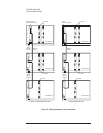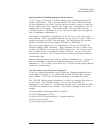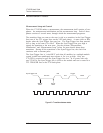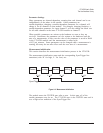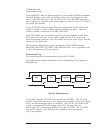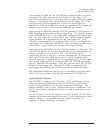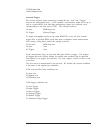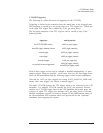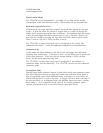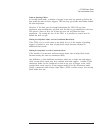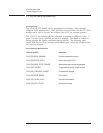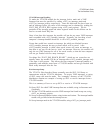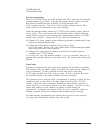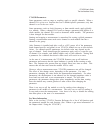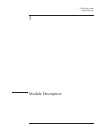
Data Transfer Modes
The VT1433B can be programmed to use either of two data transfer modes:
overlap block mode and continuous mode. Block mode will be discussed first.
Block Mode (Agilent/HP E1431A)
In block mode, the input hardware acquires one block after getting an arm and
trigger. It does not allow the system to trigger until it is ready to process the
trigger and it acquires pre-trigger data if necessary. The hardware does not accept
a new arm and trigger until the acquired block is sent to the host. There is no
provision for overlap or queuing up more than one block when in block mode.
There is also no way for a FIFO overflow to occur.
The VT1433B’s overlap block mode can be configured to act exactly like
traditional block mode. It also has additional capabilities as described below.
Continuous Mode
In this mode, the input hardware waits for an arm and trigger and then starts
acquiring data continuously. If the host is slow, several blocks can be queued up
in the input hardware. If the host gets far enough behind, a FIFO overflow
occurs and the input stops acquiring data.
The VT1433B’s overlap block mode can be configured to act similarly to
continuous mode, but not identically. The VT1433B can also use the traditional
continuous mode.
Overlap Block Mode
Overlap block mode combines features of both block mode and continuous mode.
The main difference between overlap block mode and traditional block mode is
that overlap block mode allows additional arms and triggers to occur before an
already-acquired block is sent to the host. A trigger can occur before the end of
the previous block, so overlapping blocks are possible (hence the name “overlap
block mode”). As in continuous mode, there is an overlap parameter which
controls how much overlap is allowed between consecutive blocks.
VT1433B User's Guide
The Host Interface Library
4-24



